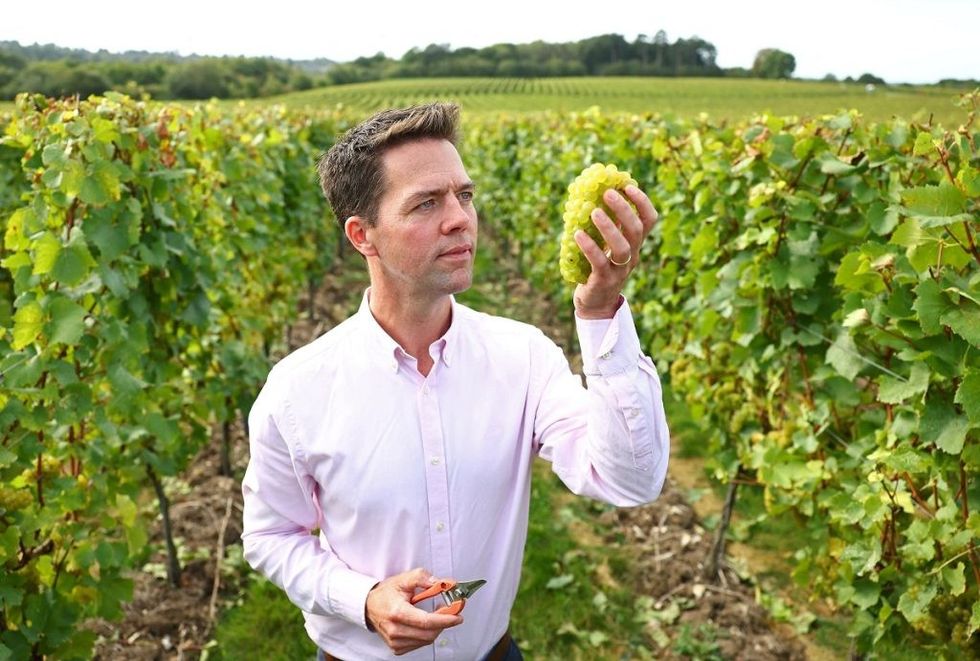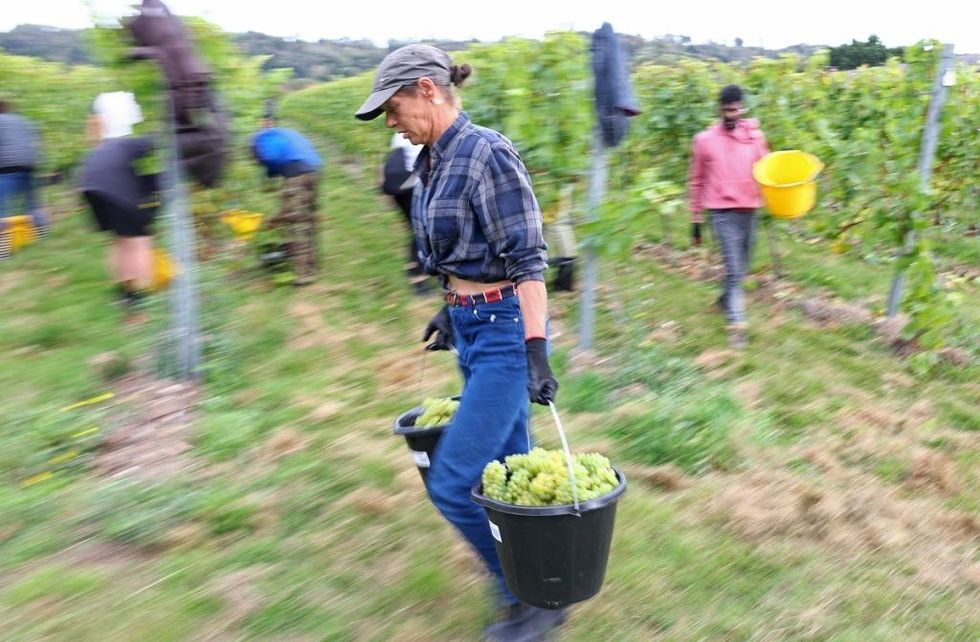For hundreds of years Britons have celebrated by drinking French Champagne. But with vineyards now dotted across hills in southern England and sustainability concerns growing, local fizz is emerging as the drink of choice.
Britain is still the world's second-biggest importer of Champagne, a favourite tipple of Winston Churchill, who said: "In victory I deserve it, in defeat, I need it."
But in recent decades temperatures warmed by climate change have provided better growing conditions for grapes in England. Quality has improved, and English wine is no longer mocked by continental neighbours who once joked it tasted of rain.
At the same time, rising concern about carbon emissions is leading many British consumers and corporations to opt for local produce over imports where they can.
These trends are creating huge momentum: viticulture is now Britain's fastest-growing agricultural sector, and the UK is planting vines more quickly than most of the world's biggest wine producing countries.
Britain is forecast to produce 22 million bottles of wine a year by 2030, a sharp rise from about 12 million bottles last year, according to industry body WineGB.
"There's so much demand for English wine we just cannot keep up," said Chapel Down's operations director and head winemaker Josh Donaghay-Spire, as he oversaw workers hand-harvesting dense bunches of Chardonnay grapes at Boxley on the rolling Kent Downs.

Two thousand years after the Romans first brought vines to Britain, English winemakers are going after Champagne's market, stressing the geological similarities of southern England's chalky slopes to those of its French home region.
Not wanting to miss out, Taittinger and Pommery, two of France's best-known Champagne houses, have bought land and planted vines in England, while the world's biggest sparkling wine company, Henkell Freixenet, acquired an English wine estate, Bolney, in 2022.
At last year's Decanter World Wine Awards, the UK won its highest ever number of medals. Winemakers say it's that, plus the "buy local" movement which sees produce from closer to home as more environmentally and socially responsible, which is driving sales.
"Local is better when the quality is good," said Geneva Guerin, 45, a documentary film maker who was sampling Coates & Seely Brut Reserve at an event in central London. The fizz is grown in Hampshire, less than 70 miles away.
There are now more than 900 vineyards in England. Hectarage has quadrupled since 2000, replacing crops, orchards and pastures.
"Because we're a young industry, we're able to put that (sustainability) at the heart of our design," Ned Awty, the chief executive of WineGB, said.
The group is working on a project that will give a clear picture of the carbon footprint of a bottle of English wine but in the meantime, Awty said, lower transport emissions compared to imported wine are proving enough to win over consumers.
As events organisers contemplate net zero targets, serving English wine is one way of creating an "obvious statement" about sustainability, said Hamish Anderson, chief executive of Tate Enterprises, which runs the Tate art galleries' events and restaurants business.
"Clients are asking us more and more about sustainability. English sparkling and still wine feeds into that narrative," he said.

English producers now account for about 60 per cent of sparkling wine served at events held at the Tate, with the rest Champagne, and Anderson expects it to head to 70%.
In the UK market for sparkling wine, English fizz accounts for 3 per cent of volumes compared to Champagne's 12 per cent. The former is growing, up 22 per cent in 2021-2022, while Champagne fell 1 per cent, according to data from IWSR Drinks Market Analysis.
Bottles of both tend to cost upwards of £20 - more than double the price of Italian Prosecco, the market leader.
English fizz currently accounts for 25 per cent of sales for events run by Searcys, a British events and restaurants company, up from almost nothing five years ago, and its head of Champagne Martin Dibben forecasts it will be 50% in the next five years.
"The sustainability is the thing that tempts them," he said.
Chapel Down, England's biggest wine producer, posted a 21 per cent rise in sales in the first six months of 2023, and is aiming to double 2021 revenues by 2026. To raise brand awareness, it sponsors cricket and horseracing events, and is opening up a second winery for visitors.
"People come, they can see the vines, see the soil, taste the wines, make that connection, and that's really powerful," said Donaghay-Spire.
(Reuters)






